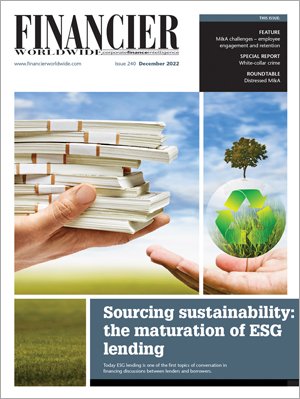Cineworld enters bankruptcy protection
December 2022 | DEALFRONT | BANKRUPTCY & CORPORATE RESTRUCTURING
Financier Worldwide Magazine
UK-based cinema chain Cineworld Group has filed for Chapter 11 bankruptcy protection in the US Bankruptcy Court for the Southern District of Texas.
Cineworld, the world’s second largest cinema chain, has been struggling to manage its debt for some time. In March, the company announced that its debt had increased by $492.7m to $4.84bn excluding lease liabilities. Its net debt including lease liabilities stood at $8.9bn at the end of 2021.
The company is also facing the prospect of a significant fine due to its ongoing dispute with Canada’s Cineplex, following the abandoned takeover of the company by Cineworld in mid-2020. Ontario Superior Court awarded C$1.23bn in damages to Cineplex but Cineworld has appealed the decision.
The Chapter 11 filing involves Cineworld’s US, UK and Jersey operations, covering the bulk of its business. The group operates 9189 screens at 751 sites in 10 countries, including Cineworld and Picturehouse Cinemas in the UK and Regal theatres in the US, and employs around 28,000 people worldwide.
The company also warned existing shareholders that their holdings would probably be considerably diluted as part of the bankruptcy process.
Cineworld’s 2018 $3.6bn takeover of Regal in the US has been highlighted by some analysts as being one of the main drivers behind the company’s unmanageable debt pile. The acquisition of Regal left Cineworld saddled with too much debt, putting it in a poor position to weather the coronavirus (COVID-19) pandemic which was hugely damaging for the cinema industry. Cineworld took on additional debt to survive the pandemic.
With admissions levels below expectations this year and with a limited film slate, the industry is still on the road to recovery. Residual delays in Hollywood’s production pipeline caused by earlier COVID-19 shutdowns and postponements, as well as a number of films going straight to streaming services, have impacted cinema chains.
In a statement, the company said: “Cineworld, with the expected support of its secured lenders, will seek to implement a de-leveraging transaction that will significantly reduce the group’s debt, strengthen its balance sheet and provide the financial strength and flexibility to accelerate, and capitalise on, Cineworld’s strategy in the cinema industry. The group has entered Chapter 11 cases with commitments for an approximate $1.94 billion debtor-in-possession (DIP) financing facility from existing lenders, which will help ensure Cineworld’s operations continue in the ordinary course while Cineworld implements its reorganisation.”
The statement adds that the process will impact “entities that are engaged in Cineworld’s US, UK and Jersey businesses; businesses in all other territories remain unaffected”.
If the plan is approved by the court, Cineworld said that the $1.94bn DIP financing would help provide liquidity for Cineworld to pay vendors, suppliers and employee wages, and honour all existing customer membership programmes. The company hopes to exit Chapter 11 bankruptcy in the first quarter of 2023.
“This latest process is part of our ongoing efforts to strengthen our financial position and is in pursuit of a de-leveraging that will create a more resilient capital structure and effective business,” said Mooky Greidinger, chief executive of Cineworld. “This will allow us to continue to execute our strategy to reimagine the most immersive cinema experiences for our guests through the latest and most cutting-edge screen formats and enhancements to our flagship theatres. Our goal remains to further accelerate our strategy so we can grow our position as the ‘Best Place to Watch a Movie’.”
Going forward, Cineworld also said it expected to change its real estate strategy in the US and would engage with landlords to improve its US cinema lease terms.
© Financier Worldwide
BY
Richard Summerfield

